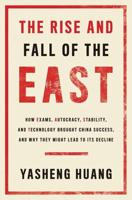Publisher's Synopsis
Direct foreign investment by transnational corporations is of increasing importance for developing nations and has major implications for legislators, policymakers and business leaders. The State and Transnational Corporations is one of the first books to show how transnational corporations build contacts with various levels of government to legitimize their operations in a country and obtain favourable decisions.
Using data and figures from detailed interviews with transnational corporation executives, the authors examine the strategies transnational corporations pursue towards governments, how the two interact, on what issues and at which levels, and how these contacts are developed and maintained. Through the exchange of information and favours, transnational corporations - often using local agents - are shown to be able to develop stable and trustworthy relationships with governments. The strong theoretical structure used in this study, drawing on both the network approach and institutionalist theory, emphasizes the cooperative nature of this relationship.
Researchers and students of international business, international marketing and international relations, as well as government officials and policymakers, will welcome the rigorous, empirical approach of this volume with its emphasis on the cooperative nature of state-corporate relations.










